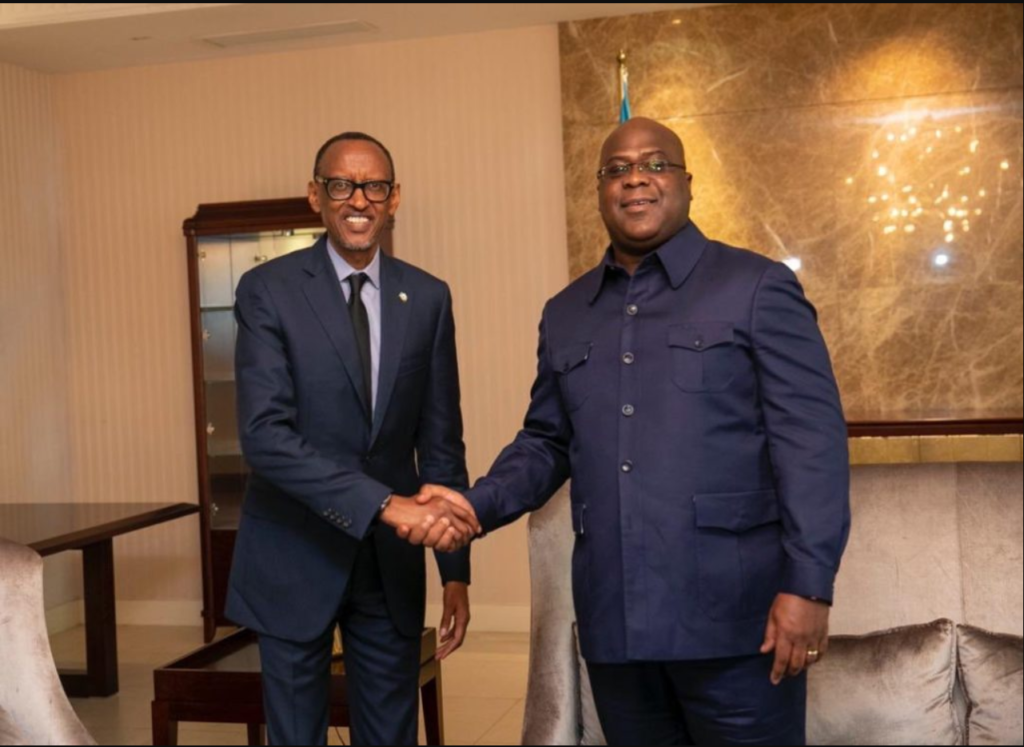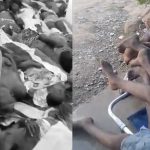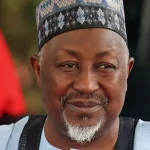
The Democratic Republic of Congo and Rwanda have agreed to a “de-escalation process” following weeks of rising tensions over rebel fighting in eastern DRC, the Congolese presidency said Wednesday after mediated talks.
But the talks mediator, Angolan President Joao Lourenco, went further announcing a “ceasefire” although giving no details.
Violence has flared between the Congolese army and the M23 rebels and is ongoing.
The DRC has repeatedly accused Rwanda of backing the M23, a charge the small central African country always denied.
“I am pleased to announce that we have had positive results, in our view, in that we have agreed on a ceasefire, among other measures,” Lourenco said in remarks at the end of the mini-summit attended by Rwanda’s Paul Kagame and Congo’s Felix Tshisekedi in the Angolan capital Luanda.
A six-goal “roadmap” seen by AFP was established towards normalising diplomatic ties, including through ending hostilities involving the M23 and the Democratic Forces for the Liberation of Rwanda (FDLR), another rebel group active in eastern DRC.
“Defeat FDLR and its splinter groups which are at the origin of tensions between Rwanda and DRC and play a major role in the insecurity of the DRC in order to ensure that the threat to security ceases completely,” it said.
The leaders are also aiming in the short-term to “create the conditions” for the return to DRC of former M23 fighters living in Rwanda.
The announcements came after day-long talks intended to defuse the current tensions on the border between the two countries and bolster peace in the subregion.
A mostly Congolese Tutsi rebel group, the M23 — or “March 23 Movement” — first leapt to prominence when it briefly captured the eastern Congolese city of Goma in 2012 before it was driven out in a joint UN-Congolese offensive.
After lying mostly dormant for years, the M23 resumed fighting last November after accusing the Congolese government of failing to honour an agreement to incorporate its fighters into the army.
Fierce fighting has seen the rebels make significant advances in eastern Congo. Last month, M23 fighters captured the strategic town of Bunagana on the Congolese-Ugandan border, for example.
At the end of Wednesday’s talks, the Congolese presidency said the three presidents had decided upon a “de-escalation process between the DRC and Rwanda”.
This involves setting up a joint DRC-Rwanda committee, which is due to hold its first meeting in Luanda on July 12, as well as a roadmap for normalising relations.
The M23 must cease hostilities under the roadmap, according to the Congolese presidency, and the “exploitation of natural resources in the region must be done in strict respect of the sovereignty of states”.
Lourenco, who is also the chairman of the International Conference for the Great Lakes Region (ICGLR), mediated the talks at the request of the African Union after the violence grew into a diplomatic faceoff between the two neighbours.
The vast mineral-rich DRC is struggling to contain dozens of armed groups in the volatile east, many of which are a legacy of two regional wars a quarter of a century ago.






